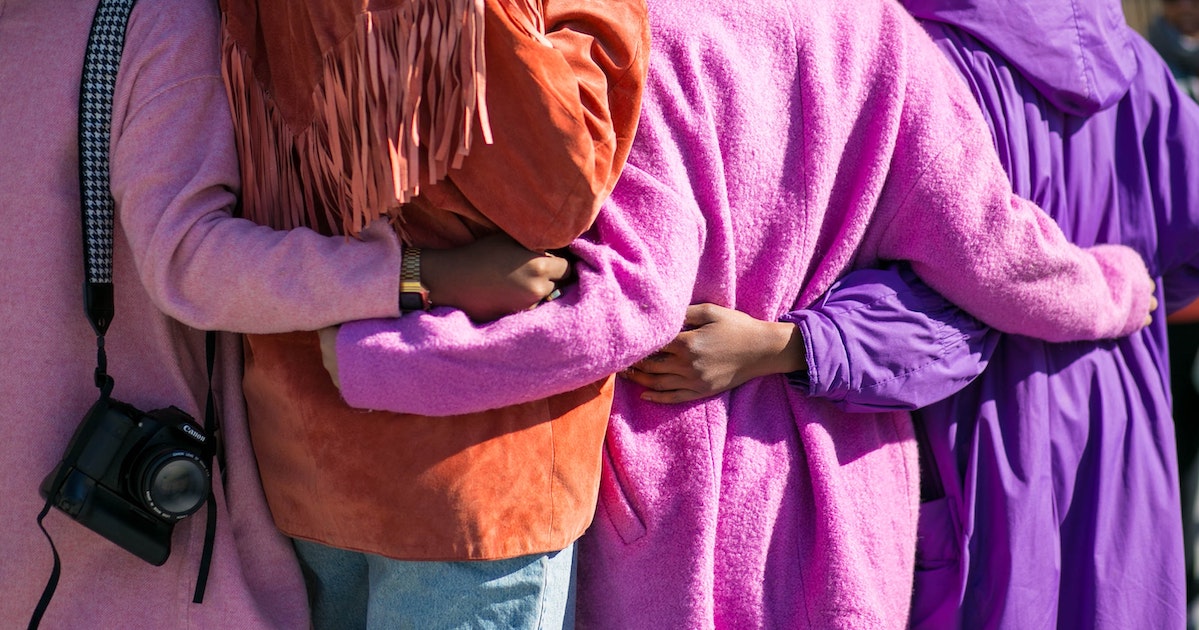
This blog is authored by Aapta Garg and Roma Richardson, Equimundo.
Submit your story to us, if you would like to share how you are rethinking care during this time, in order to help us build solidarity, support each other, and advocate for change.
With the unprecedented scale and spread of COVID-19, many of you may have questions about what we can do, right now and in the coming weeks and months, as leaders and allies.
Many of us are coming up against stark gender disparities within public health systems, and against the ways in which global pandemics and crises such as these heighten the vulnerability of paid and unpaid care workers.
The need to contain the virus makes clear the call for social distancing, the closures of schools, work places, community centers, and it also creates an undue burden on caregivers, the majority of whom are women. When governments are unable to provide basic care services, it is usually the women of our families and communities that take it on.
Certain pressing questions during this time have been around what our social responsibility is and what we can do for others. With this in mind, we ask for those who are a part of our MenCare network to reflect on this: How are we caring for those who care for us?
How are we supporting, in particular, the women who provide caregiving in the home, and those who provide caregiving outside, such as health workers? Many women are in the position of doing both: with women health workers also being responsible for much of the unpaid care work at home.
As frontline workers, the women who serve in our hospitals, clinics, and health centers are at heightened risk for contracting the virus. Research on past pandemics has shown us that persistent gender inequalities and gendered discrepancies in care can sometimes increase not only women’s exposure, but also women’s likelihood, in general, of contracting an illness: During the outbreak of Ebola and Zika, women were more likely than men to contract the virus.
We must take into consideration these structural inequities – and take measures to address them – as we plan to lessen the effects of this global outbreak.
COVID-19 has impacted daily life globally; we have seen the responsibility for care or the giving of care be shifted or disrupted in various ways, impacting those who provide both paid and unpaid care.
How are those who care being affected by this crisis? Among other effects:
- School closures mean that parents who depend upon social services within schools and/or those who do not have alternative means of child care will now need to make quick decisions around who, if anyone, can afford to stay at home to care for their families.
- For some families, school usually supplies at least one of the meals children receive per day. While some school districts have been able to continue providing meals, this is not a service that all schools are providing/can provide, leaving some families having to find alternative, likely more costly means of providing nutrition.
- For hourly-waged workers, or workers in the service industry, a disproportionate number of whom are women of color (particularly in the Global North), this means that many are at risk for losing critical work hours they need and possibly even losing their jobs.
- Home health workers and nannies who support many of us in being able to care for our families depend upon public transportation and are at high risk for either contracting or spreading the virus – including to their own families. travel restrictions may mean a loss of income or higher burden to access employment.
- Most, if not all, unpaid and paid caregivers do not have the same legal protections and access to sick leave present in other professions, particularly those who provide this caregiving as part of the informal sector.
These realities must be borne in mind as we take individual action, as policies and plans are implemented, and as containment efforts continue. While we work toward closing the care gap and achieving gender equality, it is important to discuss what we can do – during this pandemic and beyond – to ensure that those who provide care, including the women on the frontlines, have the support and protection they need.

If you are in a position to offer support, you may consider taking action to:
- Donate to your local domestic workers foundations to support organizations advocating on behalf of paid care workers and supporting care workers directly.
- Call and advocate for your local officials to pass legislation that provides all workers with paid sick leave; universal basic income, particularly in emergency situations; and supports free child care and elder care; as well as other social protections to ensure that families do not go into debt or are unable to provide for themselves or their families at all as a result of the outbreak.
- For those who depend on care workers in order to support their livelihoods, find safe ways to step in, such as providing transportation services, to assist them in travel without increasing their vulnerability for contraction.
- Support local health ministries and centers by abiding by public health recommendations now – and calling on others to do so – and in the future, advocate and support them to develop strategic plans for future outbreaks, to help mitigate the additional burdens and costs on paid and unpaid care takers.
- Donate to efforts that provide meals and other support to children during school closures or disruptions, and older individuals.
- Listen to caregivers when they identify the forms of support they need.
- Step in to offer care to children or dependents within your own family, especially to those whose caregivers provide essential health services or are otherwise required to work. Fathers, in particular, can increase their share of care in the home.
- Offer flexible working arrangements that support and prioritize the emotional and physical well-being of caregivers and their families.
In this time of uncertainty, we can work together to support caregivers, to ease the burden of care, and to show ourselves to be men, partners, families, and communities who care.
Take care.